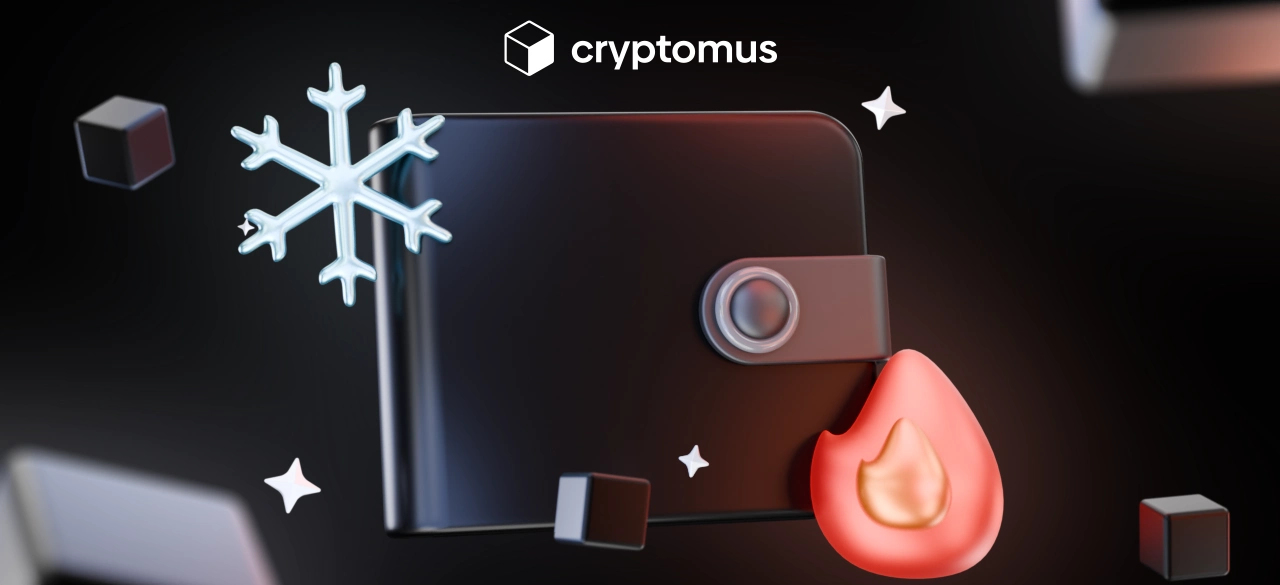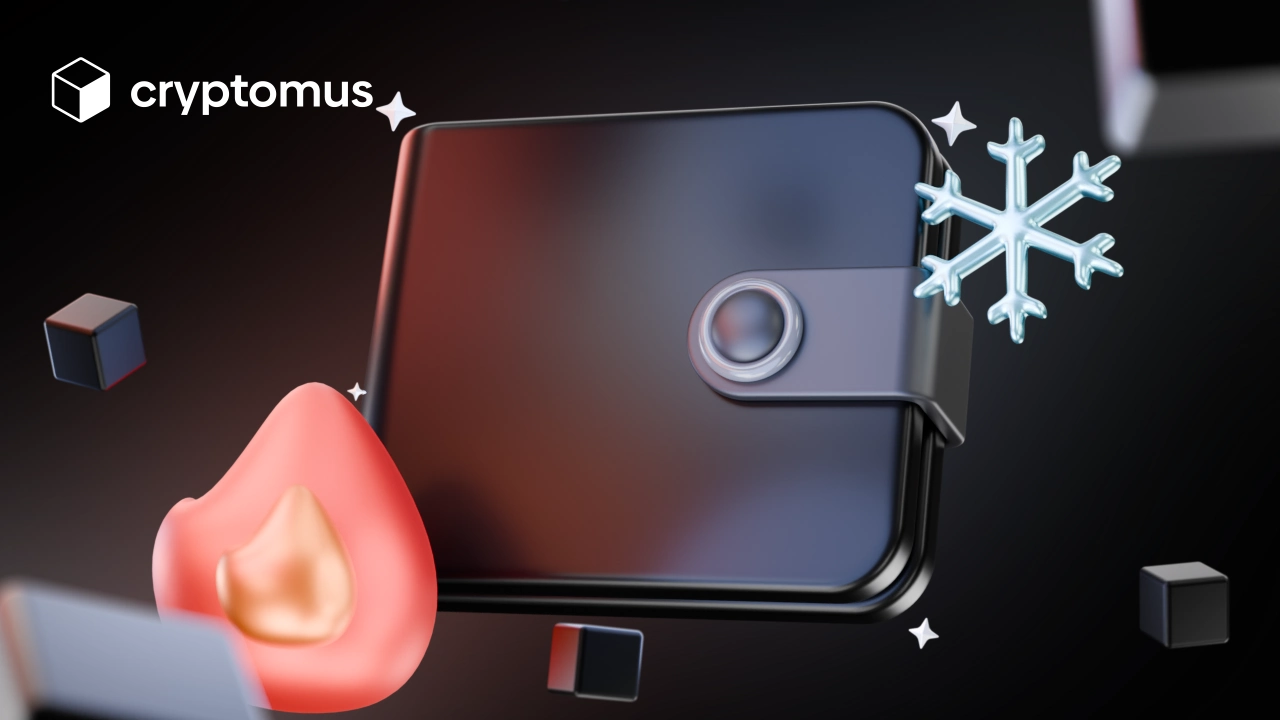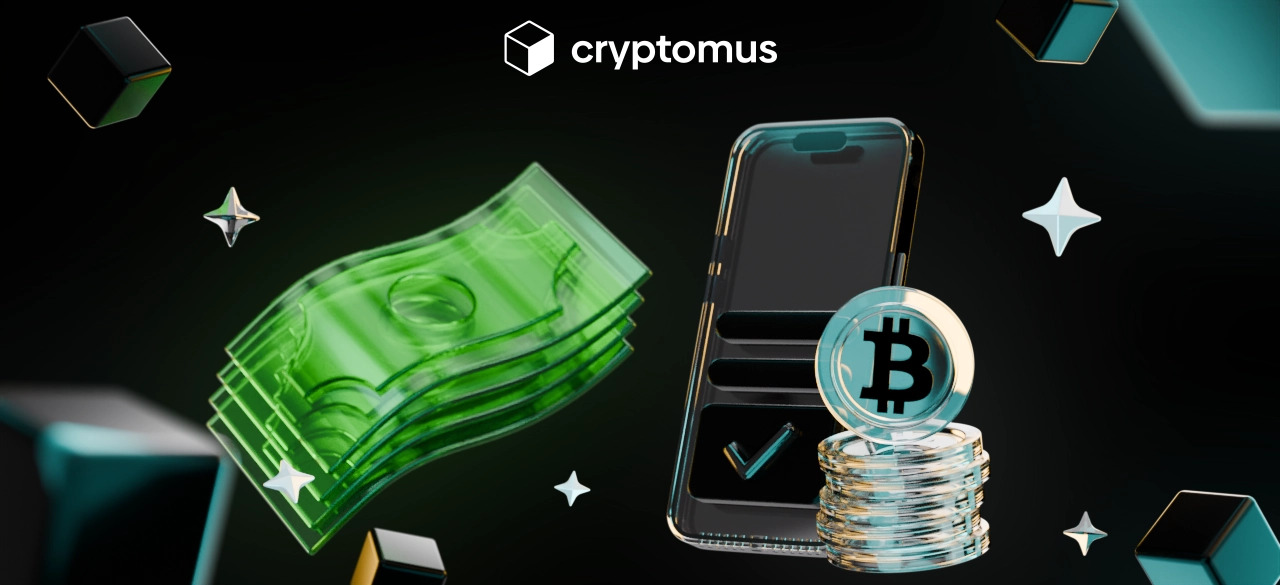
Hot Wallet Vs. Cold Wallet
Table of Contents
If you have an understanding of cryptocurrencies, you probably know about crypto wallets. It's worth clarifying that while many people refer to wallets as digital safes for cryptocurrencies, this isn't actually the case.
A cryptocurrency wallet is a software product or physical device for storing public and private keys to access accounts on crypto exchanges. Keys are a long sequence of numbers, and you can use them to send or receive digital currency. They come in two types: cold and hot. Both types safeguard the storage data, but the main difference between them is that the hot one should be connected to the Internet, while the cold one keeps data offline.
And in order to choose the right wallet for you, you need to know as much as possible about the features of each. For example, how fast access to assets you require, and how much cryptocurrency you plan to store on it. And in this article we will help you with this.
What Is A Hot Wallet?
A hot wallet is an app or an online platform that holds virtual keys online: it operates on the blockchain, so has to be always connected to the Internet. Online platforms have gained popularity among cryptocurrency users due to their user-friendly interfaces. The ability to send and receive cryptocurrencies is facilitated by this benefit.
Hot wallets provide a number of functions, from saving, sending, and receiving tokens to managing them on a single device. They are visible on all gadgets linked to the web, that is why it’s very convenient to control funds via a favorite tool: a smartphone, tablet, or laptop.
Moreover, access to hot wallets can be gained on multiple devices at once. Thus, in case of theft, you’ll be able to recover assets using a seed phrase or another backup method.
Best Hot Wallets
There are many platforms in the market that offer crypto wallets. We have made a selection of the best providers for you.
Meta Mask
It is a hot custodial wallet with an emphasis on interacting with the Ethereum network and ERC-20 tokens. Since its development in 2016, the storage has become one of the most popular suppliers of decentralized applications (dApps). It’s an ideal option for customers and merchants actively participating in DeFi and NFT. The primary drawback is the limited support for other blockchains.
Coinbase
This provider offers a non-custodial wallet of the major crypto exchange Coinbase. It allows users to store and manage cryptocurrencies through a single app. Coinbase Wallet supports hundreds of thousands of coins and a huge variety of decentralized applications.
You can also easily build your NFT collection in a few clicks, because the wallet supports buying cryptocurrency with credit or debit cards in more than 90 countries. Separately, it is worth noting the abundance of payment methods. Among them: bank account, local providers and just a debit card.
Trust Wallet
It’s a mobile e-wallet with support for 65 blockchains and thousands of tokens, owned by the Binance exchange. It prioritizes user-friendliness and provides customers with a wide range of cryptocurrency features. For example, Trust Wallet makes it easy with a built-in browser to access decentralized applications, allowing users to simply interact with DeFi and NFT ecosystems. However, the mobile app isn’t always suitable for complicated transactions due to the overabundance of options on display.
Cryptomus
The Cryptomus platform provides a hot custodial wallet with which you can manage cryptocurrency particularly easily thanks to its user-friendly interface. A conversion feature is available, which means you can easily exchange digital assets within the wallet using real-time market data. Staking is also accessible in the Cryptomus wallet, so you can get rewarded by holding and participating in a network of supported cryptocurrencies.
One more of the advantages includes the most popular and sought-after cryptocurrencies, such as Bitcoin, Ethereum, USDT, Litecoin, and others. Cryptomus is a relatively young platform but it already offers 2FA, KYC, and data encryption methods, making online storage reliable for everyday use.

What Is A Cold Wallet?
A cold wallet is a kind of crypto wallet that doesn’t require an Internet connection, making it less vulnerable to hacker attacks. The wallets might be paper types or just pieces of paper, but the most popular option is a hardware device in the form of a USB drive. It has a high cost (from 50 to 250 dollars) that is a primary disadvantage for many users. The hardware only gets linked to an account by the Internet or by utilizing a QR code, so private keys won’t end up on a third-party server any other time. The main advantage is that cold wallets prevent online stealing of keys because there is no data connection.
Best Cold Wallets
Trezor
Trezor is a leader among cold wallets for cryptocurrencies due to its reliability and simplicity. Asset management is carried out using the Trezor Suite app. In addition to the physical storagevault, the company supplies accessories: —a seed -phrase holding storage device, cases, keychains, and cables. Compared to other providers, Trezor has a smaller number of third-party applications. Also, it can be difficult for beginners to understand the settings. The customization process requires creating a seed phrase, and a mistake can result in loss of funds.
Ledger
Ledger is one of the well-known and popular hardware providers as it supports more than 5000 different cryptocurrencies. There is an opportunity to manage funds using the Ledger Live app. The device has a sleek and practical design with compact interfaces. However, there is a limit to the number of applications that can be installed at once.
SafePal
SafePal S1 is a cold wallet aimed at an increased level of security. The device is connected to a computer via USB, Wi-Fi or Bluetooth, which significantly reduces the risks of hacking. All interaction with the wallet takes place through scanning QR codes, which enables the process of making transactions and managing assets to be completely autonomous. Physically, the device has a built-in camera for scanning QR codes, as well as a screen where you can check transactions and manage assets.
SafePal S1 supports more than 10,000 tokens and over 20 blockchains, making it a versatile tool for storing various cryptocurrencies. SafePal S1 may seem less convenient for beginners due to the need to interact via QR codes and the lack of the ability to connect directly to a computer.
KeepKey
KeepKey is a hardware wallet for cryptocurrencies known for its simplicity and stylish design. The device stands out with a large display that makes it easy to verify and confirm transactions. It's convenient for beginners. KeepKey supports major cryptocurrencies such as Bitcoin, Ether, Lightcoin, and others.
The wallet provides a high level of security by storing private keys offline and protecting them with a PIN and a recovery passphrase. However, it has a few drawbacks: the device can be slower compared to its competitors, and support for cryptocurrencies is limited compared to wallets like Ledger or Trezor. Also, its size is larger, making it less convenient to transport.
Hot And Cold Wallets: Main Differences
As we said, hot and cold wallets are both responsible for the safe storage of your assets, but they have a number of differences as well. We’ve prepared a comparison table for you, where you can see them for yourself:
| Type | Price | Use cases | Maximum Number of Crypto | Cybersecurity | Ease of Access to Assets | |
|---|---|---|---|---|---|---|
| Hot Wallet | Usually free | trading | From one to tens of thousands | Vulnerable to hacking attacks due to Internet connection. | Easily accessible since it is already connected to the web. | |
| Cold Wallet | From $50 to $250 | long-term storage | From 1,000 to tens of thousands | Needs physical security measures because of the risk of being stolen | Requires extra steps to connect online through USB, Wi-Fi, or QR code. |
Well, to sum up, hot and cold wallets have their own advantages and drawbacks. We recommend using both types and holding the data you don't need right now in a cold storage. We have also prepared answers to the most frequently asked questions for you.
FAQ
Is Metamask A Cold Wallet?
MetaMask wallets can be hot or cold. If you utilize the platform only in the browser on a computer or mobile phone, it will be considered a hot type. And If you connect your MetaMask wallet to hardware storage, like Trezor or Ledger, it’ll be considered a cold type.
Is Coinbase A Cold Wallet?
Coinbase wallets offer both hot and cold options of storage for customers, as some of them prefer keeping data offline.
Is Trust Wallet A Cold Wallet?
No, Trust Wallet is a hot wallet. It means that the keys to digital savings are in your possession, but only on a device connected to the net. Unlike some competitors, Trust Wallet doesn't provide a simple cold storage option.
Is Exodus A Cold Wallet?
No, Exodus is a hot wallet, because it works only using the Internet. So, the platform is responsible for safeguarding your private keys or recovery phrases. Exodus is a good choice for those looking for an accessible cryptocurrency wallet.
Is Ledger Live A Hot Wallet?
No, Ledger is a cold storage; in other words, the keys to crypto are held offline on a hardware device. It gives you sole ownership of the data. The Platform Tangem is classified as a cold wallet too. It stores data offline, on the secure chip inside each of the Tangem wallet cards.
Simplify Your Crypto Journey
Want to store, send, accept, stake, or trade cryptocurrencies? With Cryptomus it's all possible — sign up and manage your cryptocurrency funds with our handy tools.
Get Started









